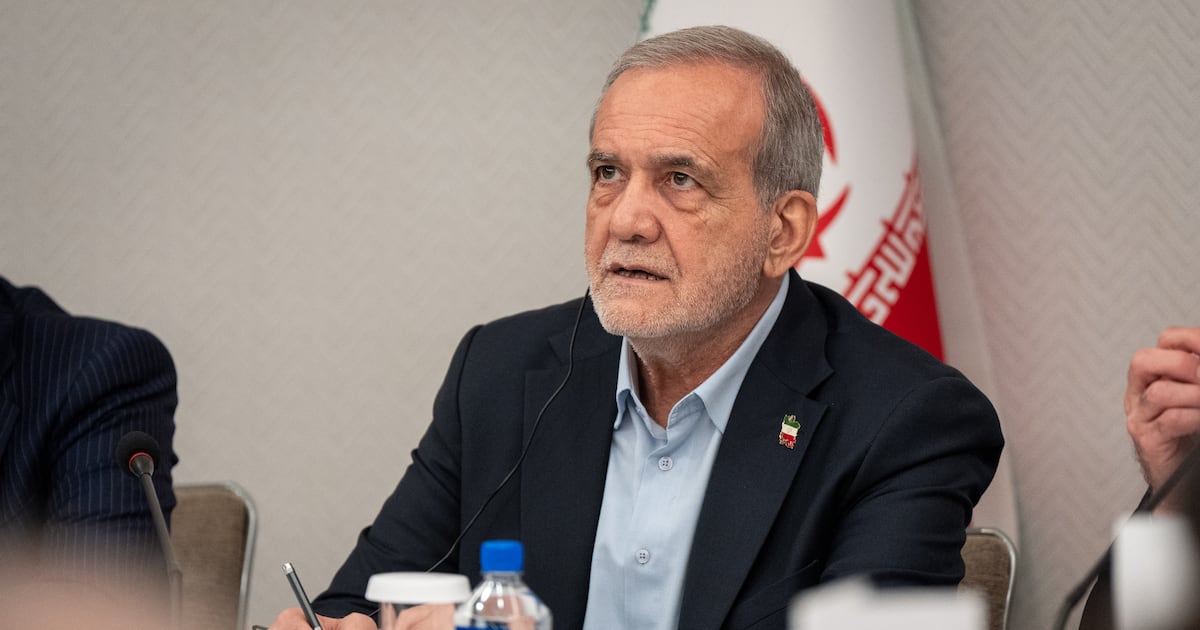World
Iran Commits to Nuclear Treaty Amid Threat of UN Sanctions

Iran’s President, Masoud Pezeshkian, has confirmed that the country will remain a participant in the Nuclear Proliferation Treaty (NPT), despite the looming threat of renewed sanctions from the United Nations (UN). This announcement came during a press conference in midtown New York, where Mr. Pezeshkian emphasized, “We do not have the intention to leave the NPT.” His statement marks a notable shift from remarks made in July by a lead Iranian negotiator, who indicated that Iran had not dismissed the possibility of withdrawing from the treaty.
As the situation escalates, European powers have moved to reimpose nuclear sanctions on Iran, which had been lifted under the terms of the 2015 nuclear deal involving the United States and several other nations. This has led to concerns among diplomats regarding Iran’s potential withdrawal from the crucial agreement aimed at preventing the proliferation of nuclear weapons.
UN Votes to Reinstate Sanctions
On the same day as Pezeshkian’s remarks, the UN Security Council was voting on the reinstatement of comprehensive sanctions against Iran. The council rejected a request to extend the deadline for the snapback of these sanctions, meaning that penalties previously lifted will take effect on Saturday night, New York time. This decision has heightened tensions, with Iran’s foreign ministry responding by recalling its ambassadors to the UK, France, and Germany for what it termed “consultations.” While stopping short of a diplomatic break, the ministry did not disclose when the ambassadors would return.
Pezeshkian addressed questions regarding the influence of major allies such as China and Russia, asserting that Iran’s commitment to the NPT would not be swayed by external pressures. The backing from these nations has been crucial for Tehran, especially in the face of renewed sanctions.
Internal Pressure for Policy Change
Despite maintaining its position within the NPT, Iran’s leadership faces increasing internal pressure to adjust its nuclear objectives. On Sunday, the Iranian parliament is scheduled to debate a letter from its members advocating for a policy shift regarding the country’s stance on nuclear weapons. This development could significantly impact diplomatic negotiations surrounding Iran’s nuclear activities.
Iran has long maintained that its nuclear program is not intended for military purposes. Nevertheless, the combination of external sanctions and internal calls for change creates a complex scenario for the Iranian government. As international scrutiny intensifies, the future of Iran’s nuclear ambitions remains uncertain, emphasizing the high stakes involved in ongoing diplomatic efforts.
The unfolding situation illustrates the delicate balance Iran must navigate between maintaining its commitments under international agreements and addressing domestic pressures for policy reform.
-

 Top Stories4 weeks ago
Top Stories4 weeks agoTributes Surge for 9-Year-Old Leon Briody After Cancer Battle
-

 Entertainment2 months ago
Entertainment2 months agoAimee Osbourne Joins Family for Emotional Tribute to Ozzy
-

 Politics2 months ago
Politics2 months agoDanny Healy-Rae Considers Complaint After Altercation with Garda
-

 Top Stories2 months ago
Top Stories2 months agoIreland Enjoys Summer Heat as Hurricane Erin Approaches Atlantic
-

 World3 months ago
World3 months agoHawaii Commemorates 80 Years Since Hiroshima Bombing with Ceremony
-

 Top Stories3 months ago
Top Stories3 months agoFianna Fáil TDs Urgently Consider Maire Geoghegan-Quinn for Presidency
-

 World3 months ago
World3 months agoGaza Aid Distribution Tragedy: 20 Killed Amid Ongoing Violence
-

 World3 months ago
World3 months agoCouple Convicted of Murdering Two-Year-Old Grandson in Wales
-

 Top Stories4 weeks ago
Top Stories4 weeks agoNewcastle West Woman Patricia Foley Found Safe After Urgent Search
-

 Top Stories2 months ago
Top Stories2 months agoHike Donegal’s Errigal Mountain NOW for Unforgettable Summer Views
-

 Top Stories2 months ago
Top Stories2 months agoClimbing Errigal: A Must-Do Summer Adventure in Donegal
-

 World3 months ago
World3 months agoAristocrat Constance Marten and Partner Convicted of Infant Murder









